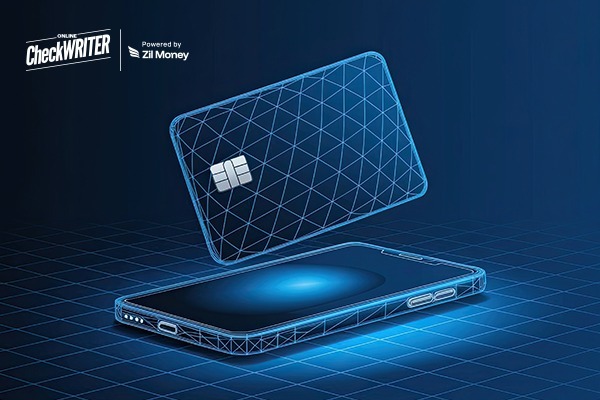Fraud Prevention at Scale: Why Single‑Use Numbers Matter When Issuing Cards in Bulk

How OnlineCheckWriter.com – Powered by Zil Money Strengthens Fraud Prevention with Bulk Virtual Cards
Imagine you’ve just given your growing team control over their own expenses. Instead of a single corporate card floating from desk to desk, you’ve issued dozens of virtual cards to remote employees, contractors and vendors. The freedom is liberating— For SMBs embracing bulk virtual cards, robust fraud controls are not optional; they’re essential. That’s where single‑use, tokenized numbers come in.
The Rise of Virtual Cards—and the Risks of Scale
Virtual cards are booming. Analysts estimate the global virtual card market was valued at roughly $13.31 billion in 2022 and is expected to grow 20.9 % per year, with B2B transactions driving most of that growth. At the same time, many businesses still rely on paper checks and manual processes; surveys show more than three‑quarters of middle‑market CFOs want virtual card payments but fewer than half actually use them.
Issuing cards in bulk can be transformative, letting finance teams give employees or vendors spending authority in seconds. But it also introduces a new attack on vectors. Without stringent controls, a compromised card number could be misused repeatedly or sold on the dark web.
What Are Single‑Use Tokenized Numbers?
A single‑use virtual card number is a unique code generated for a specific purchase or vendor. Once used, it expires and cannot be reused. Each virtual card is separate from your physical account and can be locked or deleted quickly. This “tokenization” means your bank account is not exposed; they get a substitute number that is useless if stolen.
When you issue cards in bulk, tokenization allows you to assign different numbers to different vendors, departments or employees—creating a digital fingerprint for every transaction.
Why Single‑Use Matters When Issuing Cards in Bulk
Bulk issuance magnifies risk. If you generate twenty cards that can all be used indefinitely, a single compromise exposes multiple budgets. With single‑use tokenized numbers, exposure is contained. Each card has its own spending limit, merchant restriction and expiration date, so even if a fraudster gets hold of a number, they can’t drain your account.
This approach also simplifies reconciliation: every card corresponds to a single vendor or purchase, making it easy to spot anomalies.
Cyber‑Security Trends & Regulatory Context
Fraudulent is evolving alongside payment innovation. Subscription traps, credential stuffing and vendor impersonation are increasingly common. Industry analysts warn that manual payment processes delay detection and create cash‑flow problems. Regulatory frameworks like PCI DSS require businesses to protect cardholder data; tokenized single‑use numbers minimize the data you hold, reducing compliance burdens.
How OnlineCheckWriter.com – Powered by Zil Money Elevates Bulk Virtual Cards
Not all virtual card providers offer the same controls. OnlineCheckWriter.com – Powered by Zil Money goes beyond basic tokenization. Businesses can:
- Set granular spending limits and adjust them as teams grow.
- Restrict cards by merchant, country, city or time of day, ensuring that a marketing card can’t be used at a hardware store or outside approved hours.
- Create reloadable virtual gift cards for employee rewards or customer incentives and cancel them instantly when they’re no longer needed.
- Monitor every transaction in real time, simplifying reconciliation and spotting anomalies faster.
These controls are particularly powerful when issuing cards in bulk. For example, a construction firm can generate ten single‑use cards for different subcontractors, each locked to the supplier’s merchant ID and dollar amount. If a card is compromised, it affects only that purchase—not the entire project budget.
Best Practices for SMBs Using Bulk Virtual Cards
- Define spending categories before issuing cards: allocate separate cards for marketing, travel, subscriptions and vendor payments.
- Use single‑use numbers whenever possible, especially for one‑off purchases or unfamiliar vendors.
- Leverage merchant and geographic restrictions to prevent misuse—only allow transactions with approved suppliers and in authorized locations.
- Set clear expiration dates and review them monthly. Cards with no end date are more likely to be exploited.
- Train employees on how and when to request new cards and what to do if they suspect fraud.
What This Means for Your Business
Bulk virtual cards can revolutionize how small and midsize businesses handle expenses. By pairing bulk issuance with single‑use tokenized numbers, you gain granular control over every dollar spent while minimizing fraud risk. The result is a payment process that is faster, safer and easier to audit. In a world where digital payment adoption is accelerating and manual processes hold companies, embracing advanced virtual card technology is not just smart—it’s essential.
Ready to get started? Try virtual cards to simplify your expenses and strengthen your cash flow.
FAQs
Q1: How do single‑use virtual cards work when I need to buy from the same vendor repeatedly?
A single‑use card is locked to one transaction or invoice. For recurring vendors, create a new card each time or issue a reloadable card with merchant restrictions. This prevents unauthorized charges and simplifies tracking.
Q2: Won’t issuing hundreds of cards be hard to manage?
Platforms like OnlineCheckWriter.com – Powered by Zil Money provide a dashboard where you can generate, assign and revoke cards in seconds.
Q3: Are virtual cards accepted everywhere?
Yes, virtual cards operate on major card networks and can be used online, offline stores or by phone with Google Wallet and Apple Pay.



